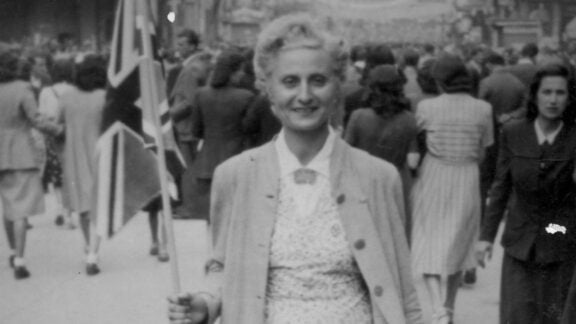English and American media have a chronic problem dealing with the reality of modern Turkey. Many naively assume that as Turkey becomes more engaged with the values of mainstream European culture, the more Turkey will embrace Europe’s better aspects. This perspective ignores the reality that the Ottomans were in Europe for four hundred years without becoming Europeanised.
The Ottomans were present for the French Enlightenment, the Darwinian revolution, the American revolution, and other transformative moments. The effect on their culture and behaviour was minimal. Comments by Turkish diplomats were often contemptuous of the West.
Of late, revisionist scholars have judged the late Ottoman Empire to be a multi-ethnic realm with many virtues. The latest rewrite of Ottoman/Turkish history has appeared in the July 15 issue of prestigious magazine The Economist, a bastion of conservative economic thought.
The Economist editors embarked on a what-if speculation about World War I. They asked what if the fading Ottoman Empire had allied with the Triple Entente forces led by Britain, France, and Russia rather than the central powers led by Germany and the Austro-Hungarians. If that had happened, they posit favourable gains for the region. Such flights of fancy can only be instructive when based on core realities. Otherwise, the fantasy becomes self-delusion.
The only major European nation with which Turkey had any rapport was Germany. The Ottoman military, in particular, admired the Prussian militarists and thought the Sultanate should emulate their methods and politics. The Ottomans also were wary of Russian support for the new Balkan states. Moreover, the Ottomans were acutely aware of the desire of Britain and France to extend their colonial empires through North Africa and the Middle East, where the Ottomans had long been dominant.
Leaving that reality check aside, The Economist posits that after the war an Ottoman Empire associated with the Triple Entente would have miraculously recognised its Greek, Armenian, and Kurdish subjects as belonging “to individual nations united under the Ottoman sovereign.” This is like asserting that if the South had won the American Civil war, it would have immediately freed its slaves. Left unsaid is that efforts at the turn of the 20th century by Ottoman reformers to establish equal rights for all Ottoman subjects had been soundly defeated by nationalist fanatics who supported genocidal pogroms against the Christian minorities.

The Economist plays word games to whitewash Ottoman/Turkish crimes. Turkey is said to have war ‘casualties’ numbering three to five million persons. This number admittedly includes the Armenian genocide, but that is explained as caused by a fear that Armenians constituted a fifth column for a hostile Russia. Thus, suppression was a result of military need rather than cultural warfare. Unnoted is that, the persecution of Armenians predated World War I. Equating genocidal attacks on one’s own population with losses on the battlefield to hostile armies is intellectual bankruptcy.
Just as outrageous as mischaracterising the Armenian genocide is the lack of any reference to genocidal assaults on Greeks and Assyrians. These also took millions of lives. Like the attacks on Armenians, some of these persecutions predate World War I.
The Economist again embraces delusionary fantasy when it posits a victorious Ottoman sultan would have stayed allied with the western democracies. Somehow the centuries-long European desire to created colonial empires, now fed by the lust for oil riches would have evaporated to allow the Ottomans to retain control of its Middle East territories.
The reality is that the European nation with which Turkey continued to have the most rapport was Germany. Hitler publicly lauded Kemal Ataturk as a model national leader and expressed his admiration for Turkey’s massacres of the Armenians. The Nazis even assisted the Turkish campaign of squelching international efforts to expose that genocide. The Turkish and German military continued their close relationship.
During World War II, Turkey was a pro-Nazi neutral that provided chromite, a key ingredient in military hardware, from the onset of the war through to April 1944. Turkish officials had joint celebrations with the Nazis during the course of the war. Turkey only issued a last-minute declaration of war on Germany in February 1945. This was partly due to a desire to be included in the UN organisation coming into existence. Not one Turkish soldier was lost fighting the Germans.
What is extremely troubling about The Economist essay is that many journalists, think tank scholars, and congressional aides consider this journal to be highly reliable. Policy shapers and police markers often recycle The Economist’s explicit and implicit premises without doing much, if any independent research. In this instance, the assumptions underlying The Economist’s speculations reinforce an already flawed sense of Turkish political culture and its ambitions.
The Economist’s what-if scenario is yet another wake-up call for Greek America. Although numerous organisations have worked diligently to expose the actual history of Turkey and its long-term objectives, much clearly remains to be done. Turkey daily violates the airspace of Greece, its NATO ally. Turkey threatens to unilaterally upend the international treaties establishing the present boundaries in the Aegean. Turkey keeps an occupying army of 30,000 plus in Cyprus and prevents reunification. None of that will alter until national and political discourse acknowledges the nature of Turkish political culture. The Economist’s contribution is a minus, not a plus in that understanding.








